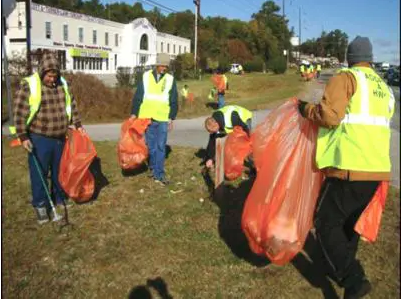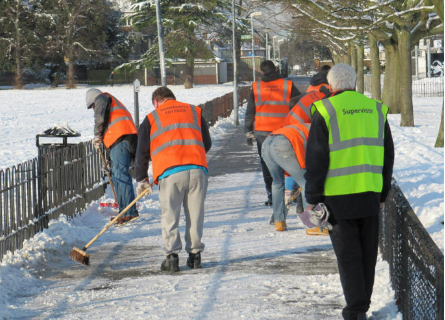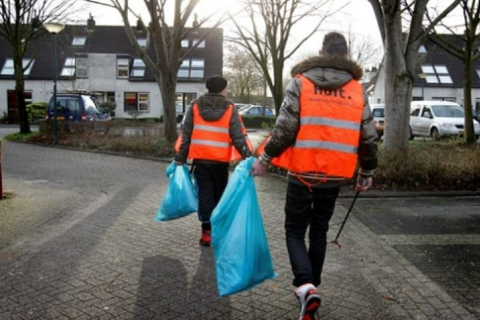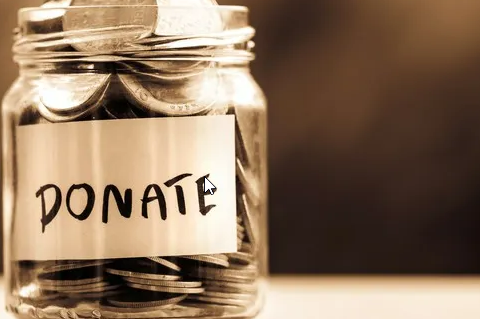Community Service Block Grant (CSBG) is an annual sum of money which is awarded by the federal government to a state or local government body that aims to reduce poverty, revitalize low-income communities and empower low-income families and individuals to be fully self-sufficient.
In order to get CSBG, you will need to apply for it. However, many people do not yet know how to apply for CSBG. If you are looking for the guide to apply for CSBG, no worries, just dive into our post below, you will get more information about it. Here you go!
Applying for Community Service Block Grant, Here’s How!
Applying for CSBG is pretty straightforward to do. To apply for it, you need to visit CSBG Map State and Territory Grantee Contact Information here. Well, this page shows you a map and your state CSBG Program Official or state CSBG Program Contact.
Read also: Is Community Service Block Grant Legitimate?
After getting your state contact information, you can then apply for CSBG by providing them with your financial situation as either low income or very low income.
If you need more contact information, you may need to visit the U.S. Department of Health and Human Services, Office of Community Services, Administration for Children and Families, Division of Community Assistance’s Staff Assignments by Region page.
Here’s a list of additional information about CSBG:
- Catalog of Federal Domestic Assistance (CFDA) Number: 93.569
- Current Method of Tribal Eligibility: Program not specific to American Indians and Alaska Natives, but they are eligible
- Can the funding from the program be renewed: No
- Funding Type: Formula Grant
- Entities Eligible for Grant Assistance: Federally Recognized Tribes and Tribal Organizations, Non-Tribal Entities
- Matching Funds Required: No
- Number of People Served by this Program (Approximate): About 15.9 million people in fiscal year 2015, and close to 6.9 million low-income families that received CSBG services.
- Length of Program: Until funding runs out.
- Recurring Base Funding for Tribes: No
- Do Tribes compete with other entities for funding from the program?: No
- Tribes Funded by this Program: Sixty-four Tribes and Tribal organizations receive direct Community Services Block Grant funds.
What is Community Service Block Grant For?
CSBG is designed to help low-income families and individual to:
- Secure and retain meaningful employment
- Attain an adequate education
- Improve the use of available income
- Get adequate housing
- Get emergency assistance including health and nutrition services
- Eliminate obstacles that blocks the achievement of self-sufficiency
- Reach greater participation in the affairs of the community
It is known that the U.S. Department of Health and Human Services actually provides CSBG funds to:
- 50 states
- The Commonwealth of Puerto Rico
- The District of Columbia
- Guam
- The Virgin Islands
- American Samoa
- Federally-recognized Tribes, Tribal Organization and State-recognized Tribes.
- Other organizations specifically designated by the states
Moreover, CSBG funding actually supports projects that lessen poverty in communities, provide services and activities that address employment, better use of available income, education, nutrition, housing, etc, as well as address the needs of low-income individuals including the migrants, homeless and the elderly.
Additionally, discretionary grants will be available at the statewide or local level, or also for associations with demonstrated expertise in handling the needs of low-income families, such as Community Action Agencies (CAA).
With the support of CSBG funding, CAAs and states work together to reach the following goals for low-income individuals:
- Increased self-sufficiency
- Improved living conditions
- Ownership of and pride in their communities
- Strong family and support systems
Working together, the agencies will increase their capacity to reach results. In this case, partnerships among providers and supporters of services actually play a large role in the successful implementation of CSBG grants.
Get to Know About Block Grants
Since the 1950s, Block Grants have been in use in some form and most have supported social service, community development programs or public health services. Block grants were designed to provide funding for those services with relatively few strings attached that allows local governments to organize and supervise the programs.
Aside from that, state and local governments probably add their own guidelines. Those will also sometimes distribute a portion of the grant to other organizations that likewise have their guidelines and rules regardless of how the money is used and for what purpose.
In recent years, block grants have fallen out of favor. A 2017 attempt to turn Medicaid into a block grant program failed. However, several block grants programs are still present. One of the enduring examples is the Community Development Block Grant (CDBG) program. This program is managed under the U.S. Department of Housing and Urban Development, which began in 1974.
Critics of block grants definitely cite the relative lack of federal oversight as a problem. Specifically, the proposal to turn Medicaid into a block grant program was considered as endangering the federal government’s ability to guarantee a standard level of service.
Additionally, grants will be awarded in one of several ways. The main four are:
- Competitive where bidders submit applications based on merit or need ask for a particular amount
- Formula, that uses an algorithm to allocate predetermined amounts of funds based on objective need
- Continuation funding in which prior grants are renewed
- Pass-through funding, with federal funds passed to state authorities that can be used for federal programs such as transportation.
Other Block Grant Programs
In addition to Community Service Block Grant, there are three remaining block grants programs available, here they are:
1. Mental Health Block Grant (MHBG)
MHBG was built in 1981 and has disbursed millions of dollars to states to help in the treatment of mental illnesses. Moreover, the grant was amended in 1986 to allow states develop services based on the advice of Mental Health Planning Councils.
2. Social Services Block Grant Program (SSBG)
SSBG is a defined program allowing the states and territories to fit social service programming to the needs of their populations. This social program is managed by Health and Human Services that is intended to
- Reduce dependency and promote self-sufficiency
- Protect children and adults from neglect, abuse and exploitation
- Help individuals who cannot care of themselves to stay in their homes or to find the best institutional arrangements.

A bookworm and researcher especially related to law and citizenship education. I spend time every day in front of the internet and the campus library.





